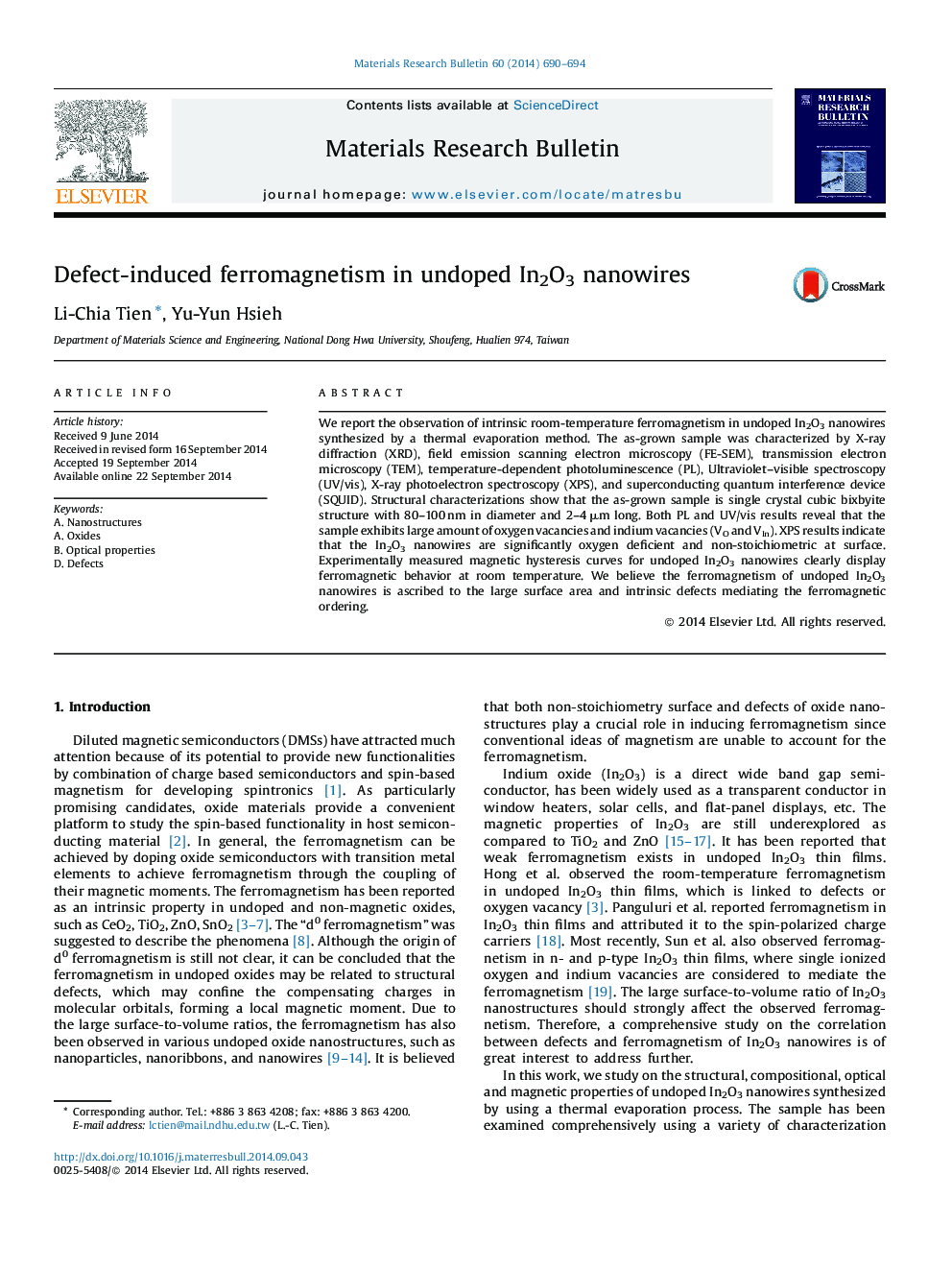| کد مقاله | کد نشریه | سال انتشار | مقاله انگلیسی | نسخه تمام متن |
|---|---|---|---|---|
| 1487895 | 1510715 | 2014 | 5 صفحه PDF | دانلود رایگان |

• Undoped In2O3 nanowires were synthesized by a thermal evaporation method.
• In2O3 nanowires show d0 ferromagnetism at room temperature.
• Large amount of defects were confirmed by PL, UV/vis, and XPS.
• Oxygen deficient surfaces and size effect mediating ferromagnetic ordering.
We report the observation of intrinsic room-temperature ferromagnetism in undoped In2O3 nanowires synthesized by a thermal evaporation method. The as-grown sample was characterized by X-ray diffraction (XRD), field emission scanning electron microscopy (FE-SEM), transmission electron microscopy (TEM), temperature-dependent photoluminescence (PL), Ultraviolet–visible spectroscopy (UV/vis), X-ray photoelectron spectroscopy (XPS), and superconducting quantum interference device (SQUID). Structural characterizations show that the as-grown sample is single crystal cubic bixbyite structure with 80–100 nm in diameter and 2–4 μm long. Both PL and UV/vis results reveal that the sample exhibits large amount of oxygen vacancies and indium vacancies (VO and VIn). XPS results indicate that the In2O3 nanowires are significantly oxygen deficient and non-stoichiometric at surface. Experimentally measured magnetic hysteresis curves for undoped In2O3 nanowires clearly display ferromagnetic behavior at room temperature. We believe the ferromagnetism of undoped In2O3 nanowires is ascribed to the large surface area and intrinsic defects mediating the ferromagnetic ordering.
Figure optionsDownload as PowerPoint slide
Journal: Materials Research Bulletin - Volume 60, December 2014, Pages 690–694